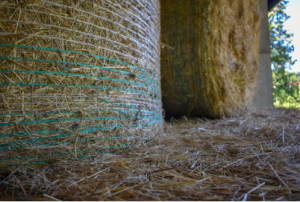Where to Buy Baling Twine
If you are wondering where to buy baling twine, there are a few options you may have to choose from. You can find natural baling twine, biodegradable baling twine, and polypropylene baling twine. The most important thing to remember is that you want to look for a brand rated for high strength and durability.
 Polypropylene baler twine
Polypropylene baler twine
The best polypropylene baler twine is easy to use and resists wear and tear from repeated handling. It also provides the utmost protection against rot and mildew. So whether you are baling hay or a Christmas tree, this will ensure your products are safe.
Polypropylene baler twine is a popular choice for a wide variety of uses. It is highly durable and resistant to most chemicals, acids, and degreasers. It is a good thing as it saves you time during silage processes.
Aside from being tough, it is lightweight. Moreover, the softness allows you to tie it better and handle it easier.
Polypropylene is also the most suitable material to manufacture baling twine from. It is cheaper and environmentally friendly. Plus, it can keep you dry, even when it floats in saltwater. Lastly, it is one of the most versatile materials on the market.
The best polypropylene baler twine has UV additives to protect it from premature degradation. In addition, it can be dyed to the colour of your choosing. It is especially great for Christmas tree baling.
It is also a great way to pack your cattle feed bales. Its softness also makes it ideal for wrapping the stems of tomatoes. Additionally, it can be used to create a reusable doormat.
Although the Super Tough Polypropylene Baler Twine benefits are many, it is a good idea to choose a product with a tensile strength of 110 knots, which is the highest strength among its competitors means it will hold its own in the long run.
However, if you are looking for a simple solution that can save you money, there are plenty of other options on the market. For instance, you can buy the Max2Twine, made from recycled post-industrial material. In addition, you can check out the sisal baling twine if you prefer a more natural and renewable material. These baling twines are naturally biodegradable and can easily replace the metal wire fences that protect livestock from predators.
Finally, you can save money by purchasing a product with a warranty. You may also ask your retailer for a quote.
Natural baler twine
Baler twine is a fibre used to bind hay and other materials. It is a robust, flexible material that is durable enough for a small bale and versatile for a larger one.
Baler twine is available in many different types of material and is available in a variety of colours. Because it is durable, it can be used to protect crops. In addition to its use as a baler, it can also be used for mending fences, repairing tractor parts, and more.
Polypropylene is the most common manmade material used for baler twine. This synthetic material is durable and resistant to most chemicals and solvents. It is also rot-resistant, making it ideal for use in packaging.
Sisal is another natural fibre that is commonly used for baler twine. Its long, strong fibres suit it for tying square and rectangular bales. Natural sisal is also biodegradable. However, some hay producers are concerned that it might rot too quickly. Fortunately, sisal baler twines are treated to prevent rot and mildew.
Cotton twine is also a natural fibre. It is made of fine spun yarn and has good handling characteristics. However, cotton contains 30% textile by-products. Therefore, while a thin baler twine may be appropriate for smaller bales, it could be more beneficial for large bales.
Sisal baler twine is made from long UV-resistant agave fibres. These fibres are also treated to resist rot and rodents. You can also find baler twine that is coloured for ease of identification.
Donaghys produces a full line of twines for baling purposes. Their technology has led to advancements in knot strength. They offer various types of twine, including cotton, polypropylene, and sisal.
Baler twine is sold in rolls or spools. Choose from a wide range of weights and colours to suit your needs.
Biodegradable baler twine
If you want to reduce the waste left behind after baling your hay, consider using biodegradable baler twine. This type of twine is made from sisal or polypropylene and is naturally degradable. It is available in various colours and can be used for multiple purposes.
Biodegradable baler twine has several advantages over traditional twines. The first benefit is that it is more environmentally friendly. Traditionally, baler twine was made from hemp. However, farmers often burn the twine, ending in landfills.
With biodegradable twine, there are no traces of harmful chemicals. Additionally, it is water-proof and odourless. These qualities make it ideal for many uses. You can even use it to create saddle strings for horses.
Another advantage is that it is more durable. Unlike natural fibre twine, which tends to degrade quickly, biodegradable twine is durable. Therefore, it can be used with a wide variety of balers.
Another advantage is that it can be coloured to match the colour of your bale. Biodegradable baler twine is also recyclable. In addition, it is UV protected.
A biodegradable twine is an excellent option for any farmer. Not only is it more environmentally friendly, but it also helps increase yields. Besides, it is more affordable. Since it does not contribute to landfills, it is a great way to cut costs.
You can find biodegradable baler twine at several different stores. Some of them are farmers’ supply stores. Those stores can help you to select the best biodegradable baler twine for your needs.
If you are considering using a biodegradable baler, you should also consider the type of fasteners you want. Biodegradable twine is compatible with three different balers: round, square and vertical.
When choosing a baler, look for the best tensile strength and durability. For example, using soft twine will not hold a knot. Also, keep in mind that you should only be storing bales outdoors. That way, no refuse twine will be wrapped around your wagon wheels.





Comments are Disabled